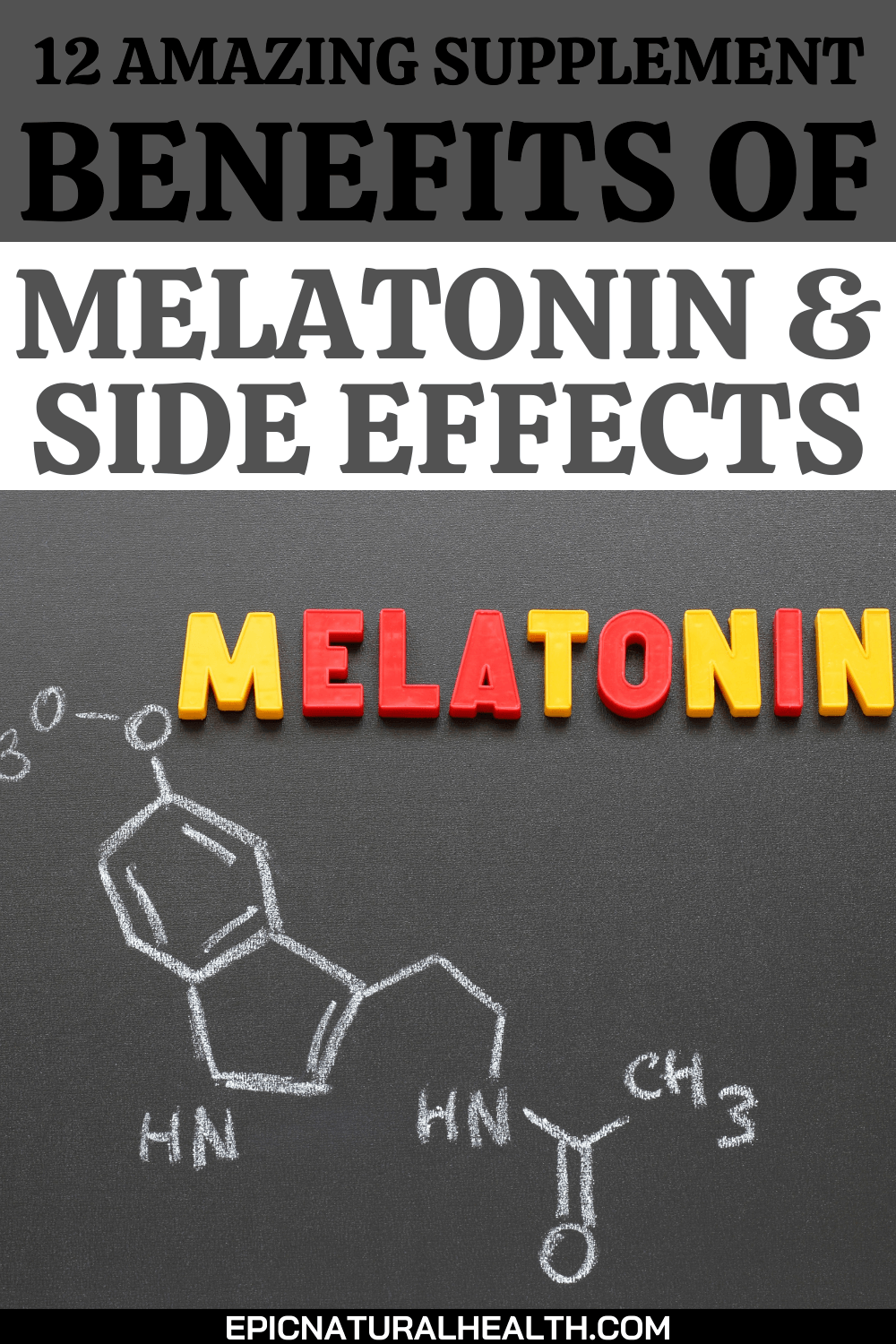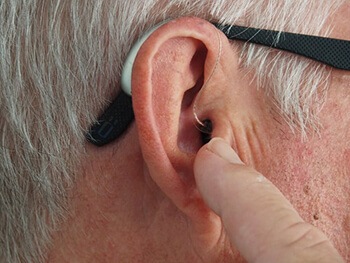Melatonin is a natural hormone produced in the pineal gland in the brain. You’ve most likely heard of melatonin for its ability to regulate our sleep cycle, helping us to get a good night’s rest and wake up feeling recharged and re-energized.
Often referred to as the “sleep hormone”, melatonin builds up in our bodies later on in the day, signaling that it is time for rest. Being water and fat-soluble, melatonin can travel through the blood all around the body, where it can affect a number of systems.
We don’t all have a set amount of melatonin in our bodies. Factors like old age and blue light can decrease our melatonin levels either temporarily or permanently. Luckily, if you’re low in melatonin, you can take melatonin supplements, or derive melatonin naturally from food sources like fruits and vegetables, grains, and nuts and seeds.
When we get enough melatonin, we don’t just benefit from a good night’s sleep. Stay tuned to discover the full range of benefits melatonin provides for mental and physical health:
1. Anti-aging properties

Melatonin boasts a number of preventative health benefits thanks to its antioxidizing properties. It increases antioxidant enzymes in the body that improves cell health and function. Melatonin binds to harmful, cell-damaging free radicals and neutralizes them, making them less harmful. Without this neutralization, free radicals can often lead to signs of aging, infertility, and even cancer.
Free radical naturalization can take place in all parts of the body, especially the eyes, bone marrow, and the brain. Aside from skin ageing, melatonin can fight against age-related diseases caused by free radical damage, such as heart disease and glaucoma. The more melatonin your body contains, the greater the antioxidizing properties on your cells.
2. Helps fight hair loss

Melatonin isn’t just beneficial when taken as an oral supplement. It can also be used as a topical treatment for hair loss, either due to ageing or a condition like alopecia. Studies have linked an increase in melatonin with improved hair growth in people with alopecia, and it’s also proved effective in treating dermatitis of the scalp.
It’s thought that because melatonin is a powerful antioxidant, it may prevent cell damage at the scalp, helping hair to grow naturally without interruption.
3. Improves fertility
As melatonin helps regulate body temperature and female reproductive hormones, including puberty and menstrual cycles, there are numerous ways that it can improve fertility and help women conceive.
A recent study found that increased melatonin levels are linked to improved fertility and that the antioxidant nature of melatonin is important for ovarian health, leading to healthy egg production. Although very high doses of melatonin have been fount to interfere with ovulation, supplementing with a lower dose of melatonin may be beneficial for any woman trying to conceive.
4. Prevents and treats cancer

We’ve mentioned the antioxidant properties of melatonin already, and how they can improve cell health and prevent free radical damage that may cause cancer. Research suggests that melatonin may also have anticarcinogenic effects, meaning that it can fight cancer cells and even prevent these cancer cells from developing in the first place.
Studies have shown that increased melatonin in the body can induce the death of cancerous cells. It can also slow the progression of the disease, and even reduce side effects from treatment in patients with advanced-stage cancers, like fatigue and muscle pain.
5. Protects against stomach conditions
Experts have found that we need balanced levels of melatonin in the body to protect against a number of stomach conditions. Recent studies suggest that low melatonin levels in the stomach could be related to a number of common stomach issues, like heartburn and ulcers.
Further research has linked low melatonin levels with the onset and progression of these conditions. This suggests that increasing our melatonin levels could alleviate many stomach issues.
It’s thought that melatonin strengthens the lower oesophageal sphincter, which helps it to prevent acid from entering the oesophagus. In fact, evidence suggests that people with sleep disorders caused by lower levels of melatonin have a higher risk of gastroesophageal reflux disease.
6. Promotes a healthy heart

Thanks to its wide-ranging anti-inflammatory properties, increasing research has linked melatonin to improved heart health. In particular, experts think that melatonin can reduce blood pressure and lower cholesterol, reducing cardiovascular risk by modulating the metabolism of cholesterol and minimizing harmful reactions triggered in the cardiovascular system.
One study found that patients with heart disease have notably lower levels of melatonin. It’s not yet clear whether this is down to patient age, as the majority of heart disease sufferers are in their later stages of life, and will have experienced a natural decline in melatonin.

7. May prevent the onset of diabetes
New studies show evidence that that older people with naturally decreased melatonin levels may be at a higher risk of contracting type 2 diabetes. Research has found that women with low levels of melatonin have twice the risk of developing the condition, even when body weight and diet are considered. This suggests that if this was to be flipped around, people with high levels of melatonin have a much-reduced risk of developing type 2 diabetes.
Melatonin is not yet an effective treatment for diabetes, but studies suggest that it may perhaps be used in combination with other treatment methods in the future. One study, in particular, found that melatonin can protect muscle cells from a toxin that causes insulin resistance, and improve liver health and function in diabetic, overweight rats.
- ULTRA SUPPORT: Carlyle Melatonin is delivered in convenient 12 mg fast dissolve tablets
- OPTIMAL FORM: Fast-dissolve tablets deliver 12 mg of Melatonin with natural berry flavor
- ROOTED IN WELLNESS: Carlyle provides premium, honest supplements in your pursuit to healthy living
- CARLYLE MANUFACTURERS: Laboratory Tested, Trusted Ingredients, Superior Quality, 100% Guaranteed!
- FALL ASLEEP FASTER, STAY ASLEEP LONGER: Natrol melatonin promotes sleep in as little as 15 minutes(1)
- SLEEP SUPPORT: Natrol Melatonin Sleep Support gummies for adults help you fall asleep faster, stay asleep longer, and wake up feeling refreshed and ready to take on the day ahead(1)
- 100% DRUG-FREE SLEEP AID SUPPLEMENT: These melatonin gummies for adults are 100% drug-free and non-habit forming, vegetarian, gelatin-free and do not contain synthetic dyes, artificial flavors and sweeteners
- DELICIOUS TASTING GUMMIES: Pectin-based adult melatonin gummies feature a delicious strawberry flavor and have a soft texture that’s easier to chew than standard gelatin gummies, making them easy and delicious to take
- CONVENIENT FOR BUSY LIFESTYLES: As America's #1drug-free sleep aid brand, take these chewable melatonin 5mg tablets 30 minutes before bedtime for restful sleep support (1,2)
- 100% DRUG-FREE: Enjoy sleep support with our non-habit forming, 100% drug-free melatonin dissolvable tablets
- SLEEP SUPPORT: These melatonin chewables help you stay asleep longer through melatonin dissolvable tablets so you wake up refreshed and ready to take on the day ahead (1)
- FALL ASLEEP FASTER: Natrol Melatonin 5mg tablets promote falling asleep in as little as 15 minutes (1)
- Occasional use supplement: Adults take one maximum strength(1) Melatonin 10 mg tablet one hour before bedtime with water, and do not exceed one of these Melatonin 10mg tablets daily
- These gluten free melatonin supplements have no color added, no artificial flavors, no preservatives, and are 100% drug free
- Contains one 70 count bottle of Nature Made Melatonin 10 mg Maximum Strength(1) Tablets, a sleep support supplement providing 10mg melatonin
- This sleep supplement contains melatonin, a hormone found naturally in the body that helps to regulate sleep and wake cycles
8. Helps maintain eye health
We’ve touched on this topic already, but melatonin is thought to be incredibly effective at maintaining eye health and preventing the onset of common age-related degenerative diseases of the eye, including glaucoma and macular degeneration.
Studies have found that a shortage of melatonin in childhood can lead to early vision problems. Its antioxidant properties also make it helpful in fighting cell death caused by free radicals, which can decrease pressure in the eyes and reduce the risk of eye disease.
9. Eases symptoms of tinnitus

Tinnitus, a condition commonly known as “ringing in the ears”, has so far proved difficult to treat – but new evidence suggests that melatonin might be the solution going forward. Scientists are unsure which properties of melatonin are particularly beneficial for treating tinnitus, but one study has found that melatonin is 150 times more effective at decreasing tinnitus symptoms than other drugs designed to treat the condition.
10. Helps treat anxiety, depression, and bipolar

People with anxiety, depression, and bipolar are more likely to experience issues with sleep than those with good mental health. Research has found that melatonin can have positive effects on people suffering from these mental illnesses, with one study of eight clinical trials finding that melatonin improved symptoms of depression more than a placebo did.
Another study found that anxiety patients who were offered a drug to increase their melatonin levels experienced improved sleep quality and reduced anxiety symptoms after ten weeks.
Confusingly, there is also evidence to suggest that melatonin may aggravate some mental illnesses. Scientists think that because melatonin makes you feel low in energy, it might worsen certain depression symptoms. Always consult your doctor before using melatonin as a treatment for mental illness.
11. Improves sleep quality

As melatonin is known for its ability to regulate the sleep cycle, it’s unsurprising that higher levels of melatonin can lead to better overall sleep. Melatonin is commonly used as a treatment for insomnia patients, and as a natural treatment for jetlag, thanks for its ability to reset the sleep-wake cycle. One study found that melatonin is also beneficial for improving sleep quality and duration in people who undertake shift work.
Keep in mind that while high levels of melatonin are important for sleep, the time of the day our body produces melatonin is equally important. We need increased levels of melatonin in the evening before sleep, to indicate to our body that it’s time for rest. We also need less melatonin in the daytime, to help us to stay energized and alert.
12. Improves symptoms of Alzheimer’s disease
Research has found that people with Alzheimer’s disease generally have lower levels of melatonin than those with healthy cognitive function. Studies show evidence that patients with Alzheimer’s who took melatonin supplements not only experienced a significant improvement in sleep quality but also had decreased instances of confusion and agitation – both common in Alzheimer’s.
It’s even thought that melatonin may prevent the onset of Alzheimer’s by improving sleep quality, although more research is needed to determine why this is.
Side effects of melatonin
Generally, you won’t experience any serious side effects from taking melatonin, and it has been used medically for up to 2 years in some people. You can safely take melatonin by mouth or apply it topically to your skin. However, melatonin has been known to cause some lighter side effects including headaches, short-term feelings of depression, daytime sleepiness, dizziness, stomach cramps, and changes in mood.
It’s recommended that you don’t drive or use machinery for four to five hours after taking melatonin. If you’re trying to get pregnant, you should also avoid taking melatonin, as it’s been found to have similar effects to birth control. During pregnancy, low doses of melatonin may be safe, but you should consult your doctor before taking it to stay on the safe side.

If you have a bleeding disorder, some research suggests that melatonin might worsen your symptoms. As we’ve mentioned earlier, melatonin can worsen symptoms in people with depression. Melatonin can also interact with sedatives, birth control pills, and caffeine.
A safe dose of melatonin for insomnia is 0.3 to 5 mg of melatonin daily for up to 9 months. If you’re prescribed melatonin by a doctor, they’ll be able to guide you on the correct dose to take for treating your particular condition.
If you’re supplementing with melatonin, always take the recommended dose for that particular supplement. Remember that it’s not a case of “the more, the better” when taking melatonin supplements, so stick to low doses for the best effects.Conclusion

Melatonin has far greater use than simply regulating night and day cycles or sleep-wake cycles. If you’re low in melatonin, you may need to work to naturally increase your melatonin levels to alleviate your symptoms.
If melatonin supplements aren’t for you, keep in mind that you can just as easily naturally boost the melatonin intake you get from your diet. Foods that are particularly high in melatonin include cherries, bananas, almonds, spinach, and tomatoes. If you’re concerned about low levels of melatonin, always visit your doctor and discuss methods of treatment if necessary.





